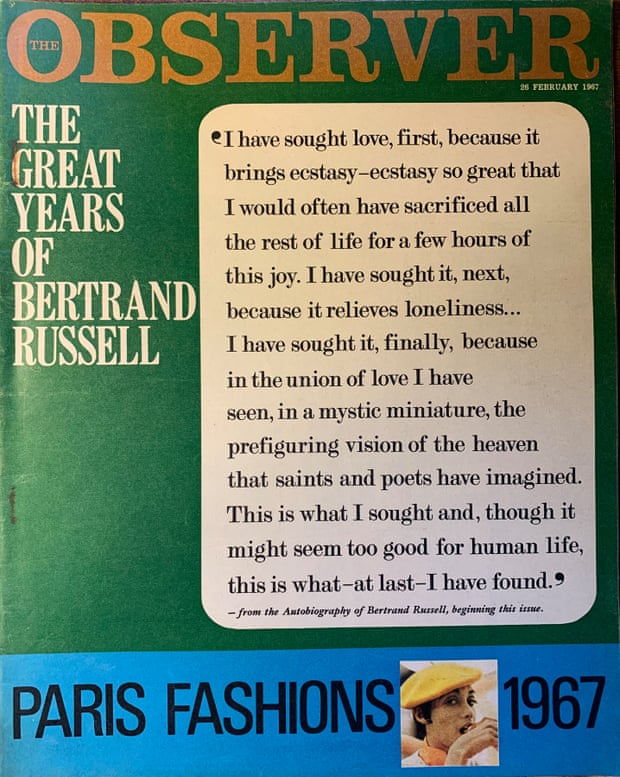by CHRIS HALL

The Observer Magazine has never again featured an extract from the autobiography of a philosopher on its cover after ‘The Great Years of Bertrand Russell’, 26 February 1967.
But then Bertrand Russell was no ordinary philosopher. ‘Three passions, simple but overwhelmingly strong, have governed my life,’ he wrote. ‘The longing for love, the search for knowledge and unbearable pity for the suffering of mankind.’
Russell had his share of death to deal with – his mother, father and sister all died before he was four and his grandfather (a former prime minister) when he was six. His grandmother was the most important person to him in his childhood, although ‘by the age of 14, her intellectual limitations became trying to me, and her Puritan morality began to seem to me to be excessive’.
He must have been equally trying as a child. Sample anecdote: ‘“Auntie, do limpets think?” To which she answered, “I don’t know.” “Then you must learn,” I rejoined.’ He taught himself ‘enough Italian to read Dante and Machiavelli’. For secrecy, he wrote in Greek in his journal.
Russell writes: ‘Throughout my childhood I had an increasing sense of loneliness and despair of ever meeting anyone with whom I could talk. Nature and books and (later) mathematics saved me from complete despondency.’
Then there was his eccentric friend McTaggert, at Cambridge. ‘I used frequently to go to his breakfasts, which were famous for their lack of food.’ Under McTaggert’s influence, he became a Hegelian. ‘I remember the exact moment during my fourth year when I became one. I had gone out to buy a tin of tobacco and was going back with it along Trinity Lane, when suddenly I threw it up in the air and exclaimed: “Great God in boots! – the ontological argument is sound!”’ Hold the front page.
